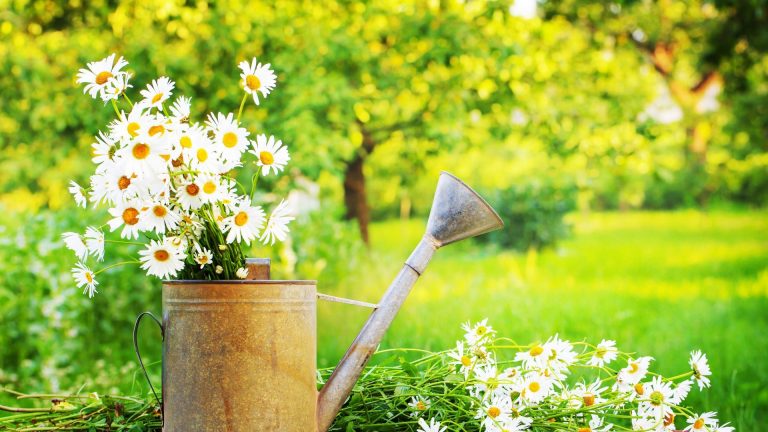It’s hard for an avid gardener to put down their spade come winter. That’s why so many choose to garden year-round.
Whether it is wintering expensive outdoor annuals inside your home, investing in a small greenhouse or growing miniature indoor gardens on window ledges and in special containers, there are many ways to keep gardening all year.
Growing plants and flowers, both indoors and outdoors adds an element of beauty to your yard and home that can be very satisfying. It’s also profitable. Well-placed trees, shrubs, flowering plants and an attractive lawn can increase the value of your property by as much as 10 per cent.
A greenhouse or solarium, or miniature indoor gardens that allow you to garden year-round, also add beauty and value to your home. A greenhouse, in fact, can be therapeutic. Not only can you watch flowers bloom and harvest vegetables and herbs 365 days of the year, you can work the soil and tend to it regardless of weather conditions.
So, if you don’t want to give up the spade this fall, begin to consider the following options now:
Bringing your fancy annuals indoors
In addition to the inexpensive annuals, such as impatiens and petunias, most of us plant to add colour to our gardens every spring, consider investing as well in more expensive, but interesting and hardier annuals.
It’s well worth the extra investment because most of these more expensive annuals will winter quite well inside your home, adding colour and brightness to those dull, dreary winter days.
Plants that perform well over the winter include hibiscus, lantana, Mexican heather, passion flower, lithodora, the Mandevilla hydrid, geraniums and others available in spring at most garden centres.
After enjoying their beauty all summer long, cut them back before the first frost in fall, pot and place them in a bright spot indoors until the following spring when you can slowly re-introduce them to the outdoors. Don’t forget to include some herbs, such as rosemary, which stay well indoors over the winter too. Don’t expect the plant tags to tell you these plants can thrive for more than one summer, though.
Invest in a greenhouse
A greenhouse can be the key to year-round gardening for many avid gardeners. There are many greenhouse models on the market today, in varying sizes and prices, to choose from. You can build your own, buy prefabricated kits which must be assembled, or have one custom built for your home.
Greenhouse gardening requires plenty of sunlight. So, choose the location carefully and consider the possibility of future expansion when deciding on the size. Greenhouses require fans, heaters, vents, sprinklers and shelving units. A variety of glazing materials are used to promote thermal efficiency, including glass, acrylic, film and polycarbonate. These materials can increase the rate of plant growth by as much as 50 per cent.
A greenhouse can be an avid gardener’s dream come true. You can grow exotic plants and vegetables, experiment with new gardening techniques, and experience the warmth of a summer garden on the coldest of winter days.
Creating an indoor garden
Greening your home with indoor plants is fun and a bargain compared to filling up and brightening spaces using furniture and other decorative techniques. You can hang them from the ceiling, set them on tables and other furniture pieces, perch them on window sills, prop them in empty corners — the possibilities are limitless.
Don’t settle for just simple houseplants, There are many varieties of plants to choose from, including dwarf trees that can easily raise a crop of grapefruits, lemons or oranges right in your living room — but you should expect a three to five year wait for the first fruit to develop.
If you don’t have a big home or big ideas about indoor gardening, miniature houseplants can be very cheerful and great decorators. Because they occupy less space, you can also grow more of them and in greater variety. Dwarf geraniums, for example, will bloom over and over again. Small pots of colorful cacti will do well on a narrow window sill.
Windows can be the best places to decorate with a living garden, as long as the plants are not haphazardly arranged. It should be an artistic composition, an arrangement of plants and containers that create an attractive, refreshing and charming effect.



